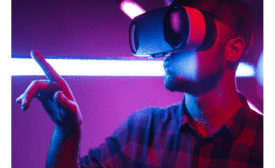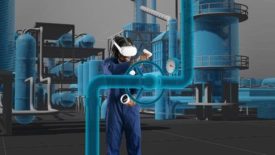Home » Keywords: » virtual reality
Items Tagged with 'virtual reality'
ARTICLES
Use virtual reality with caution — it’s not child’s play
The best way to learn
July 22, 2019
Apps, virtual reality & embedded PPE appeal to millennials
Smart safety solutions
April 5, 2018
Get our new eMagazine delivered to your inbox every month.
Stay in the know on the latest safety trends.
SUBSCRIBE TODAYCopyright ©2024. All Rights Reserved BNP Media.
Design, CMS, Hosting & Web Development :: ePublishing











